Should America Go to the Moon Again Definition
The Real Reason We Haven't Been Dorsum To The Moon
On July 20, 1969, one of the most momentous events in human history occurred: Men walked on the Moon. It was the culmination of more than than a decade of scientific, engineering, and political work and represents one of our greatest achievements. Eventually the United States completed six Moon landings, bringing a full of 12 astronauts to the Moon's surface past 1972.
And so nosotros stopped.
It will soon be 5 decades since a human being has walked on the Moon'due south surface. Opposite to countless science fiction stories, nosotros don't have a Moon base of operations. Reverse to a lot of optimistic opinions, we're not fifty-fifty very close to ever going back. Unremarkably, the hardest part about getting from 1 place to some other is the first time; after that, the logistical problems have been solved and the trip becomes easier and easier. For example, once Europeans figured out there was an enormous land mass between them and India, going to and from the Americas chop-chop became routine.
And then how come that hasn't happened with the Moon? Although your first guesses are probably part of the caption, at that place isn't only ane existent reason we haven't been back to the Moon. There'southward a whole matrix of reasons keeping us sadly Earth-jump.
The Cold State of war ended
1 of the central drivers of the USA'due south quest to land men on the Moon was a sense of competition with the Soviet Union. Every bit Ars Technica reports, the Soviet Union poured money and expertise into their space program in the 1950s, and accomplished several astonishing fists. Sputnik was the first artificial satellite orbiting Earth in 1957, and in 1961 Soviet pilot Yuri Gagarin became the first homo to orbit the World. By the early on 1960s, information technology seemed obvious that the Soviets were going to be the first nation to state someone on the Moon.
The Common cold War was in full gear, and the potential technological and strategic advantages such a feat would give the Russians was a concern. President Kennedy said in 1962 "This is, whether nosotros like it or not a race. Everything we exercise [in space] ought to be tied into getting to the Moon ahead of the Russians."
As noted past former NASA Master Historian Roger Launius, the Space Race was really a proxy war betwixt the United States and the Soviet Union. Instead of deploying tanks and troops on Earth, the two countries deployed scientists and engineers in an effort to claim the Moon as their own—if only symbolically. Those Cold War conditions no longer exist, and then far, no state has risen to the same rivalry with the Us as the Soviet Union had, removing a key reason nosotros went to the Moon in the first place.
It's too politically risky
It took more than a decade to get u.s.a. to the Moon the first time. It likewise took an incredible amount of coin and endeavor, both mental and physical. And information technology could have gone wrong at any time—engineering could have failed, astronauts could take died, or a new president could have simply canceled the project. The political risks were and then high it's actually miraculous the projection succeeded.
As Business Insider reports, those political risks have but gotten worse in the decades since our last visit to the Moon. Presidents have oft suggested a return to the Moon, and NASA has come upwards with several plans to do then—but one time the price tag shoots up and the challenges become clear, these plans are commonly shifted to goals perceived as more practical.
That's the other trouble: The benefits of going dorsum to the Moon are largely theoretical. Scientific research is a central reason to get back—but in that location'south no clear turn a profit margin. A Moon base could be used as a refueling depot, merely until there'due south a more practical reason to go to and from the Moon—or to use the Moon every bit a layover on our way somewhere else—the risks associated with such a project are frightening. Put simply, no politician wants to take their name associated with an expensive boondoggle, or a tragic disaster.
The original moon landing was a PR stunt
Information technology's absolutely truthful that John F. Kennedy was the human who pushed for going to the Moon, citing the need to fight the Russians' efforts to boss space. But the truth is a picayune less inspiring. Considering part of the reason President Kennedy pushed so hard for the Infinite Programme was his demand for some skilful publicity afterward a series of political disasters had his administration reeling.
Every bit CNET reports, Kennedy began his presidency convinced that a Moon landing would be far likewise expensive to seriously consider. Then he had a very bad, no good year in 1961. The Soviet Union made the USA expect bad when they put Yuri Gagarin in orbit around the Globe. That fabricated the USA look weak, and made the argument that we couldn't afford to go to the Moon look kind of light-headed.
Then Kennedy light-green-lit the Bay of Pigs Invasion. This was a disaster for Kennedy. It was so poorly organized and incompetently executed, information technology made Kennedy look really, really bad. Information technology changed his attitude towards his military leaders and advisers, and it forced him to wait for a style to alter the chat. Announcing a bold "Moonshot" mission was platonic. It fabricated him look like a visionary leader and it fabricated the Us look like a technological superpower. If you lot desire us to go dorsum to the Moon, we might need a new political disaster.
The moon landing wasn't designed for repetition
Landing on and strutting around the Moon in 1969 was an incredible feat. Sure, it toll a tremendous amount of money and effort, but you'd exist forgiven for assuming that once we've achieved a goal like this, information technology must get easier to practise.
Unfortunately, yous're wrong—and that'due south one big reason we haven't been back since the cease of the original Apollo Program in 1972. As noted by the MIT Technology Review, because the original Moon landing project was positioned as a "race" against the Soviets, the project wasn't designed for efficiency. Shortcuts were used wherever possible, and no ane thought to build sustainable supply bondage. The end consequence is a system where the equivalent of two or three jumbo jets' worth of applied science and engineering is but burned upwards or thrown away, never to be used again.
In other words, the whole system of getting people to the Moon was never designed for repetition. It's really amazing nosotros ran 17 Apollo missions and got to the Moon vi times using it. If we want to get serious about going back, we'll need to blueprint a sustainable, efficient system for doing so. Don't concur your breath; in 2007 Google announced the X Prize, offering $20 million to the first non-governmental arrangement to consummate a lunar landing. Since then only iii crafts accept landed on the Moon—all government projects, none crewed.
The original Apollo designs were barely safe
Since 1969 nosotros've managed to put a total of twelve people on the Moon. That'southward incredible, only even more than incredible is the fact that they all survived the trip. Put but, getting to the Moon and back is incredibly dangerous, and the danger is exacerbated by the fact that Apollo craft blueprint could exist described as taking a "minimally-feasible" arroyo to prophylactic.
As Buzzfeed News reports, the frantic race to put men on the Moon led to a lot of corner-cutting in terms of the technology and applied science used. After the 1969 Moon landing, the sense of urgency that drove the project evaporated. Nosotros'd beaten the Soviet Union to the Moon, after all, and every subsequent Apollo mission seemed to underscore how little we got back out of these expensive and stress-inducing missions.
It all came to a caput in 1970 when the Apollo 13 mission went horribly incorrect. An explosion jettisoned the crew's oxygen supply and damaged the module, leading to a tense, frightening trip abode in a crippled transport. While the astronauts returned safely, the incident underscored the fact that the Apollo spacecraft was, in the words of historian John Logsdon, being pushed "right upwardly to the border of its condom performance." Non long subsequently, President Nixon cut funding for the Moon landings and shifted NASA's focus to cheaper, safer projects: Skylab and the Space Shuttle.
We need better applied science
Engineering science is e'er advancing, right? We managed to put together spacecraft that carried astronauts to the Moon then got them dwelling house safe and sound in 1969. Surely the last five decades have seen some incredible advances in the technology needed for such a mission?
If yous're talking near computers, the answer is yes. The computers on the Apollo lunar modules were incredibly basic compared to today's hardware. In fact, as Real Clear Science notes, the smartphone in your pocket is probably 100,000 times more powerful than the reckoner in the Apollo spacecraft. Heck, some calculators released in the 1980s were more powerful.
But computers are just part of the technology required to get people to and from the Moon—and their limited capabilities were by design, as they needed to exist extremely efficient in gild to use very little electricity. And every bit noted in Forbes, much of the hardware used in the Apollo missions remains state-of-the-art—and this technology was barely skilful enough to get the states at that place and keep everyone alive dorsum and so. The lack of serious advances can be seen in how similar today'southward Space X launches are to the launches in the 1960s—not much has changed. And that's one huge bulwark to going back to the Moon.
Presidents aren't patient
Legacy is e'er on politicians' minds. John F. Kennedy officially launched the mission to country on the Moon in 1962. Past the time we actually accomplished information technology in 1969, he had been assassinated—but he would have been out of office even if he'd lived, thanks to term limits. Richard Nixon, who Kennedy had defeated in the 1960 election, was the man who got to relish in the publicity generated by the Moon landings.
That makes presidents hesitate. As Lifehacker notes, since it can accept a decade—or more—to fund, design, build, and test something equally complex every bit a Moon landing, whatever president that pushes for such a project is guaranteed to be out of office by the fourth dimension information technology reaches fruition. In today's political climate where presidents are never not campaigning, that's intolerably long to await. And incoming administrations—especially if they're of the opposing party—have a habit of canceling big projects put into movement by their predecessors precisely to deny them the credit.
In fact, Buzz Aldrin, the second man on the Moon, has argued pretty plainly that the only way we're getting back to the Moon is if both political parties in this country put aside their differences. "I believe it begins with a bi-partisan Congressional and Administration commitment to sustained leadership," the legendary astronaut said, and he's not wrong.
The Challenger and Columbia disasters
Every bit Buzzfeed News notes, the Space Shuttle programme was pushed forward in the 1970s because it would be cheaper than landing on the Moon—and safer. The Space Shuttle plan might have been a step back from the incredible achievement of putting people on the Moon, just it kept humans in space and served an incredibly of import purpose both in preserving the United states of america'southward position equally a leader in space exploration and people's excitement almost it.
When the Space Shuttle Challenger exploded on takeoff in 1986, it was a horrifying moment that chilled the entire nation. As Space notes, that issue led to changes in how NASA worked and how the Space Shuttle program was used. Information technology was scaled dorsum, and some of the missions the Shuttle was performing were shifted back to older, more reliable technologies.
Then, in 2003, the Space Shuttle Columbia disintegrated when returning to Earth. As PBS reports, this second disaster had a much broader effect on the infinite plan. President Bush and his administration question whether information technology was worth putting human being lives in danger by putting them routinely into space. This new, more cautious attitude pretty much concluded whatever take a chance of a serious effort to return to the Moon—such a mission suddenly seemed far too dangerous.
Making the moon pay is difficult
Like it or not, we're a capitalist society. Projects are pitched with a render on investment—and putting people on the Moon merely doesn't offer any kind of profit. In fact, when yous consider how much incredibly expensive applied science winds up burning up and crashing into the bounding main, never to exist used once again, it runs into negative numbers by a wide margin.
There are some possible ways the Moon could exist made into a profit-making operation, which would attract investors and corporate money to the projection. As noted by Space, the Moon is a rich source of helium-3, a rare—and finite—element that could one twenty-four hour period be a tremendous source of power. And the Moon could also exist set upwards as a stopover point for longer trips. For example, a manned mission to Mars could fly to the Moon, refuel, and accept a much better chance of arriving safely on the Reddish Planet.
But for either of those scenarios to brand sense, we'd need a permanent Moon base of some sort. Co-ordinate to Yahoo Finance, estimates on the cost to establish a "basic" sort of base run to the $100 billion range—and maintaining just four astronauts in such a base of operations would cost $36 billion a twelvemonth. And that's earlier setting up the equipment and infrastructure for mining or refueling operations. That means making whatsoever sort of profit is nigh incommunicable—and so enthusiasm for a return remains low.
New resources opening on Earth
1 major reason that plans to return to the Moon have been put on hold is that the resources necessary for such a massive undertaking are needed much closer to home. In the Arctic, specifically.
Equally CNBC reports, climate change is quickly transforming one of the virtually inhospitable areas of the world, the Arctic Circle, into a rich source of new, resource-packed territory. It's estimated that oil and natural gas reserves worth as much as $35 trillion are waiting under the ice, and the USA is locked in a race with both Russia and Prc to secure every bit much of the area as possible. Much of the money and engineering brains that might exist working towards a new moonshot are instead working on this problem instead.
The similarities between the challenge of edifice a base of operations on the Moon and locking down the rights to the Arctic are and then strong, in fact, that Wired reports that the race to control the Chill is viewed as a dry out run of sorts for the eventual race to control the Moon. In that location are already legal arguments forming that the manner things are handled in the Arctic every bit information technology opens up should be a model for how disputes might be handled in the futurity on the Moon. But nosotros won't go to the Moon until we sort out the much more pressing—and more than local—problems hither first.
The focus is on Mars
"Been there, done that" doesn't seem like it would be a viable political or scientific attitude, but it sums upward the basic attitude of many when it comes to the Moon. In fact, many people in the government and in space-related agencies think nosotros should be focusing on Mars as a priority.
Equally Scientific American reports, the House of Representatives' Commission on Science, Space, and Engineering science introduced a bill this yr to make exploration of the blood-red planet NASA'southward official stretch goal. Not only is Mars a much more valuable destination in terms of scientific inquiry and expanding our understanding of the universe, it's also a goal that has captured the public'south imagination.
That doesn't mean going back to the Moon is completely off the tabular array, however. As The Atlantic reports, almost experts agree that the only way nosotros're going to go human beings to Mars reasonably safely is if we build a relay station of sorts on the Moon. Astronauts would travel from the Earth to the Moon, refuel and make other preparations, then launch from the Moon to Mars, simplifying the logistics of the trip. Merely that means that we're nonetheless not going back to the Moon until someone puts some serious coin, talent, and other resources backside a trip to Mars.
The global pandemic is slowing things downwards
The global pandemic has blessed us with toilet paper shortages, mask requirements, and endless Zoom meetings. Now at that place'due south ane more thing you can blame on the novel coronavirus: A lack of progress on going back to the Moon.
When NASA announced plans to get American astronauts back on the Moon by 2024, many thought it was overly optimistic—but even if the schedule slipped, it was an exciting development. Every bit Reuters reports, the programme to get back to the Moon led to serious work on creating a adjacent-generation rocket chosen the Space Launch System (SLS), along with a new crew module called the Orion. The program has striking some bumps—it's already $two billion over upkeep—merely it was scheduled to be tested for the first fourth dimension this year.
But just similar every other industry, the aerospace world has been hit by the global pandemic. NASA recently announced information technology would be forced to close down two important facilities: The Michoud Assembly Facility and the Stennis Space Centre in Mississippi. The closures were necessary because employees there tested positive for the coronavirus. The shutdowns have had a large touch: NASA had to officially suspend the SLS plan for the time existence, dealing a serious blow to any chances of a render to the Moon.
Source: https://www.grunge.com/247837/the-real-reason-we-havent-been-back-to-the-moon/
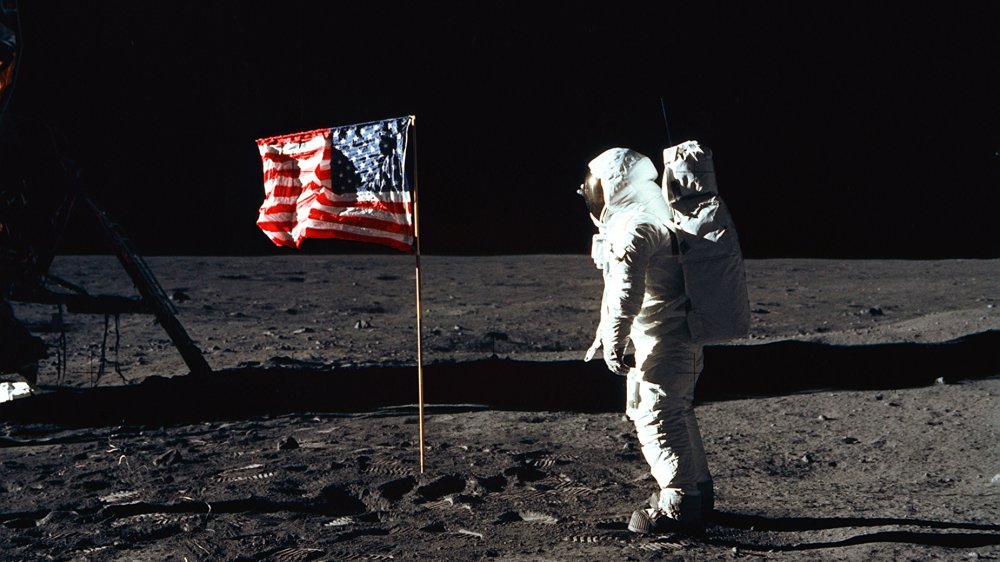

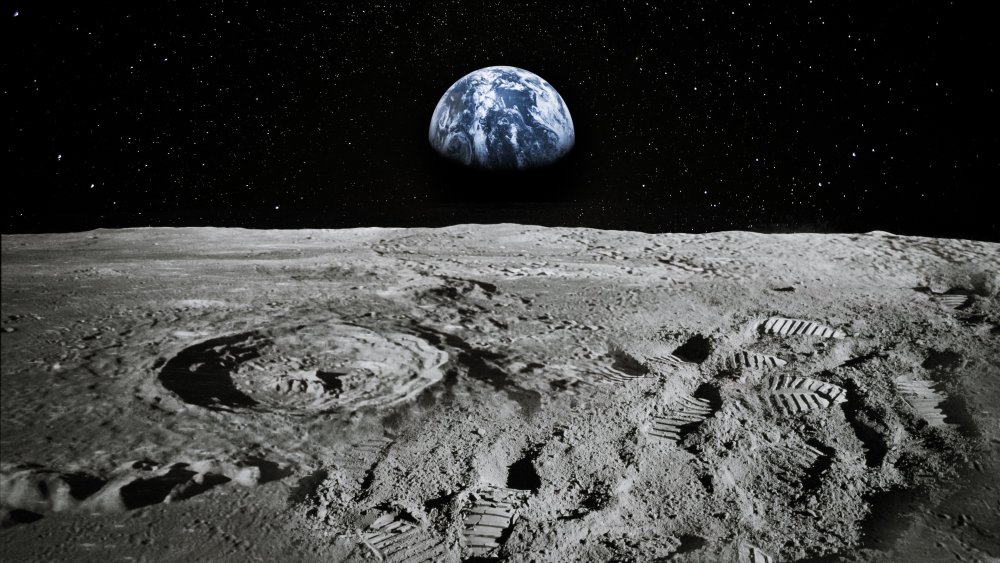

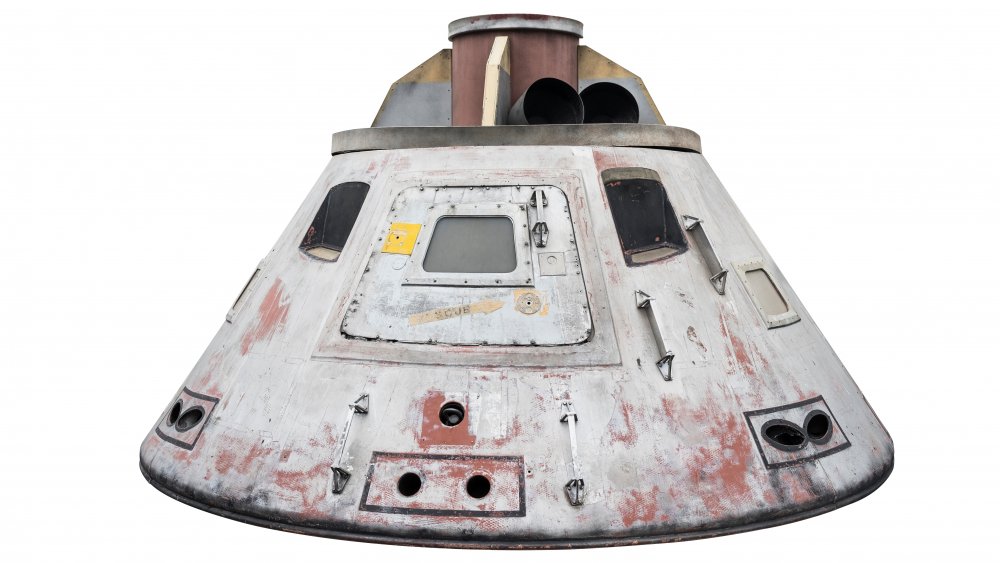
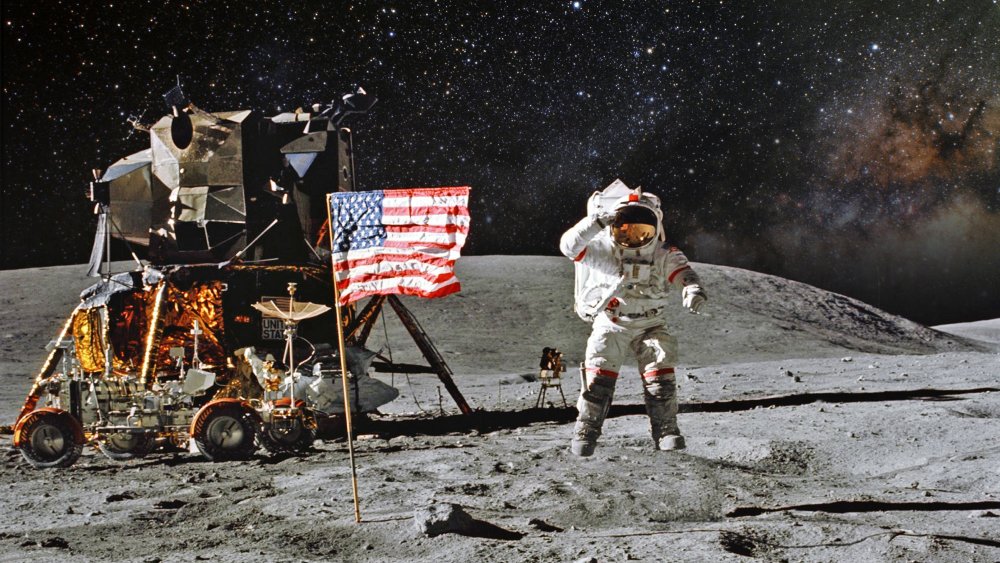
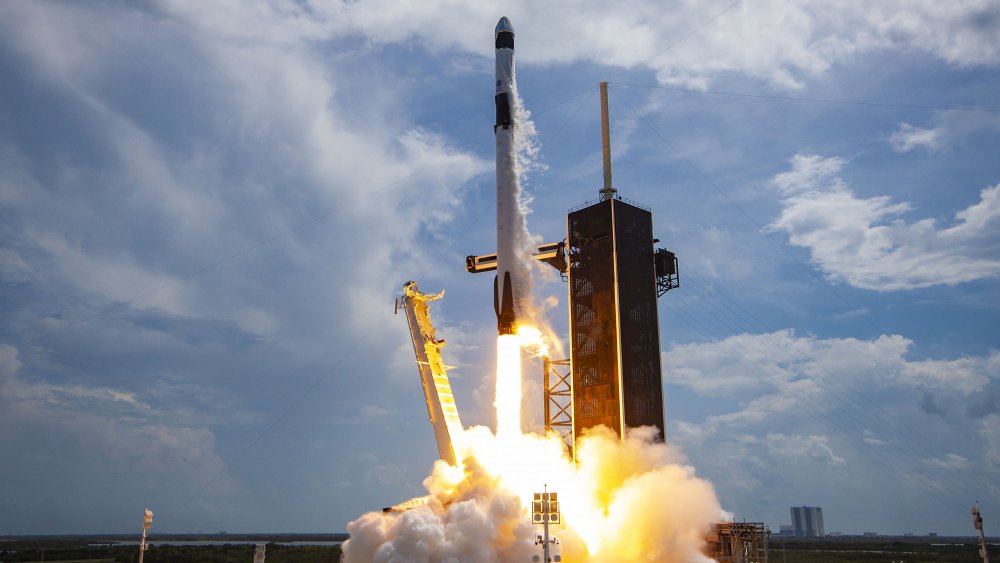
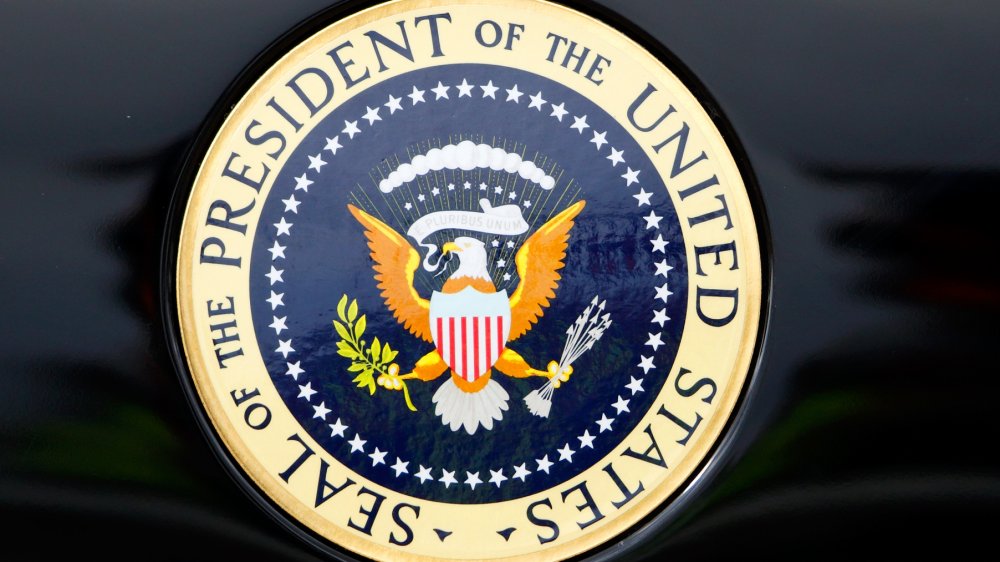



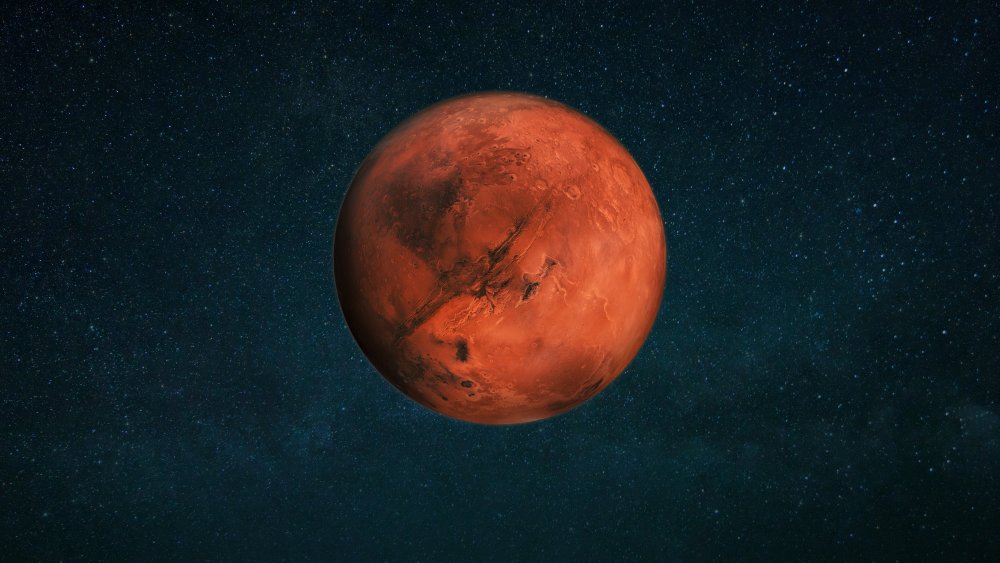

0 Response to "Should America Go to the Moon Again Definition"
Post a Comment